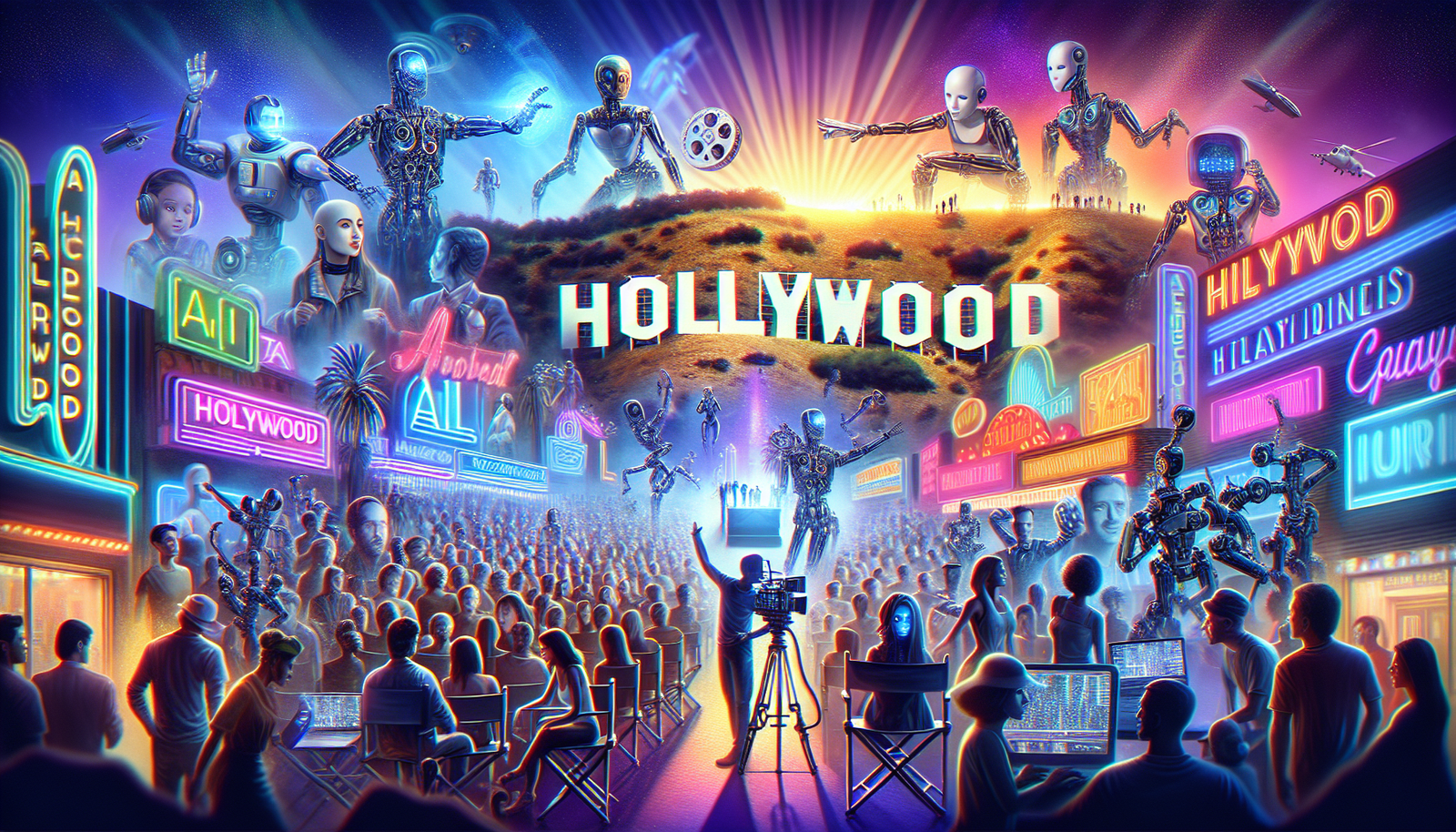The impact of artificial intelligence transcends mere technological boundaries, diving deep into the heart of Hollywood strikes. Screenwriters, in search of protection and recognition, confront the rise of AI that threatens their creativity and very existence. Simultaneously, AI infiltrates the world of Oscar-winning films, redefining artistic and narrative standards, sparking an exciting debate. Far from being just a tool, *it becomes a player in dramatic evolution* and cinematic writing, provoking an unprecedented reflection on the *nature of human creativity*. The trend of associating AI with prestigious productions disrupts conventions and calls for heightened vigilance in this era of cultural mutation.
The Demands of Screenwriters and AI
Since May 2, 2023, Hollywood screenwriters have maintained an extended strike. Their dissatisfaction mainly stems from exploitative practices related to artificial intelligence. The growing use of AI in the entertainment industry raises ethical questions and concerns about job preservation. This movement led by the Writers Guild of America has intensified, even drawing support from actors.
The strikers demand clear and restrictive guidelines on the use of AI to protect human creativity. Their concerns revolve around preventing the replacement of the workforce with automated tools. During negotiations with studios like Disney and Netflix, the regulation of AI has become a central point of discussion.
The Impact of AI on Audiovisual Works
The rise of AI in film production facilitates creation but also raises issues of authenticity. Studios rely on AI for tasks ranging from scriptwriting to voice modulation, causing fears about the quality of works. Screenwriters worry that excessive reliance on this technology undermines the creativity inherent in their profession.
The strike has highlighted the extent of changes brought on by AI. Entire scripts can be generated in an instant. This appropriation by studios makes industry professionals tremble, anxious about a dilution of narrative art.
Repercussions on Award-Winning Productions
The link between AI and Oscar-winning productions is forming in recent discussions. A growing recognition of AI’s capabilities could influence Oscar selections, with works incorporating automated writing tools. The Academy Awards must establish criteria for evaluating AI’s contributions to the creative process.
Upcoming films already integrate AI-generated elements, altering the perception of the highly anticipated Oscar ceremonies. The boundary between human creation and technological assistance is blurring, influencing works perceived as authentic.
The Industry’s Reactions
Actors, during their recent strike, expressed similar concerns regarding the use of AI. Many fear that AI will transform their roles and compensation. Current contracts do not provide adequate protection against the misuse of AI, increasing tension within the industry.
The unions of the Screen Actors Guild (SAG-AFTRA) and the Writers Guild of America have begun establishing restrictions on what can be done with AI tools. They advocate for a transparent legislative framework that ensures the protection of artists’ rights. These movements aim to strike a balance between technological innovation and recognition of human talent.
Uncertain Conclusion
A future where AI coexists with cinema artisans seems inevitable. The effects of the Hollywood strikes could forge a definitive framework for the use of artificial intelligence. The place and authenticity of humans in this new digital era remain to be defined. The collaboration between technology and creativity could thus open unexplored horizons for the film industry.
Frequently Asked Questions
What is the impact of AI on the strikes in Hollywood?
AI is a major concern for screenwriters and actors, as they fear it will replace their work. The strikes aim to secure clear guidelines for its use in film production.
How does AI influence Oscar film creation?
With the increasing use of AI to create scripts and special effects, films using AI technologies have begun to receive Oscar nominations, raising questions about the value of human creativity.
What guarantees do actors and screenwriters seek regarding AI?
They demand protections to prevent AI from being used to replace human jobs or to generate content without their consent or fair compensation.
Why has AI become a central point in negotiations in Hollywood?
AI touches on crucial aspects of production, leading creative workers to demand clear rules to manage its use in order to avoid compromising the human workforce.
Can AI really replace screenwriters and directors?
While AI can analyze data and generate content, human creativity, emotion, and the complexity of narratives remain unique elements that AI struggles to replicate.
How is the film industry adapting the use of AI after these strikes?
Studios are beginning to implement policies to regulate the use of AI, aiming to ensure that human contributions remain valued while integrating new technologies ethically.
What examples of recent films incorporating AI have been recognized at the Oscars?
Films like “The Creator” and “Artificial Intelligence: AI” explore themes surrounding AI and have been recognized for their technological and artistic innovations.
Has the strike impacted education about AI in Hollywood?
Yes, the strike has prompted discussions about training future screenwriters and directors, incorporating modules on AI to prepare them for this new industry reality.






